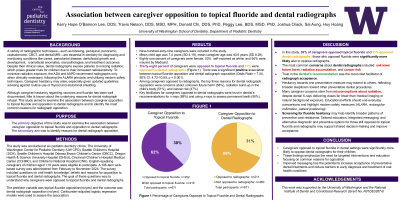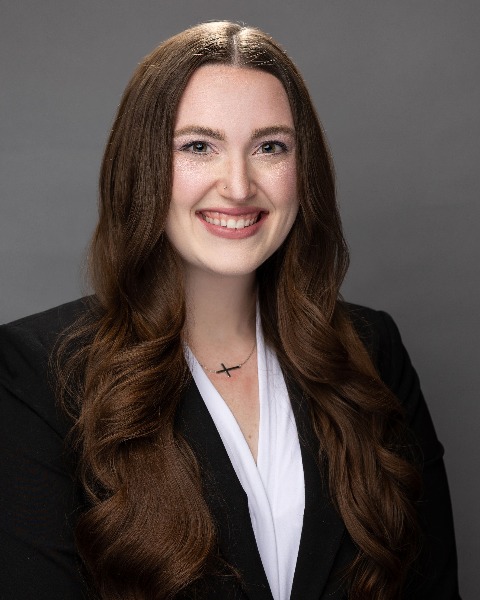Preventive
374 - Association between caregiver opposition to topical fluoride and dental radiographs


Kerry H. O'Bannon Lee, DDS
Pediatric Dental Resident
University of Washington, Seattle, WA
University of Washington Center for Pediatric Dentistry
Seattle, Washington, United States.jpg)
Travis H. Nelson, DDS, MSD, MPH
Program Chair and Research Mentor
University of Washington, Seattle, WA
University of Washington
Seattle, Washington, United States- TT
Thomas Tanbonliong, DDS
Program Director
University of Washington
Seattle, Washington, United States
Presenting Author(s)
Research Mentor(s)
Program Director(s)
Purpose: The objective of this study was to examine the association between caregiver opposition to topical fluoride and opposition to dental radiographs. The secondary aim was to identify reasons for dental radiograph opposition.
Methods: The study was conducted at six pediatric dentistry clinics, all affiliated with university or hospitals. English-speaking caregivers of children aged < 18 years were eligible to participate. A 108-item web-based survey was administered from February to November 2024. The predictor variable was topical fluoride opposition (no/yes). The outcome was dental radiograph opposition (no/yes). Confounder-adjusted logistic regression models were used to assess the association.
Results: Nine-hundred-sixty-nine caregivers were included in the study. Mean child age was 7.4 (SD 4.1), mean caregiver age was 40.6 (SD 8.29), 81% of caregivers were female, 53% self-reported as white, and 56% were insured by Medicaid. There were 38% of caregivers opposed to topical fluoride and 31% opposed to dental radiographs. There was a significant positive association between topical fluoride opposition and dental radiograph opposition (Odds Ratio = 7.0, 95% CI: 4.7-10.7, P < .001). The top three reasons for dental radiograph opposition were concerns about radiation build up in the child’s body (51%), cancer risk (47%), and unknown future harm (45%).
Conclusions: Caregivers opposed to topical fluoride in dental settings were significantly more likely to oppose dental radiographs for their child, emphasizing the need for targeted interventions and education that focus on common reasons for opposition.
Identify Supporting Agency and Grant Number: Research supported by the University of Washington and NIDCR Grant No. R01DE026741.

.jpg)